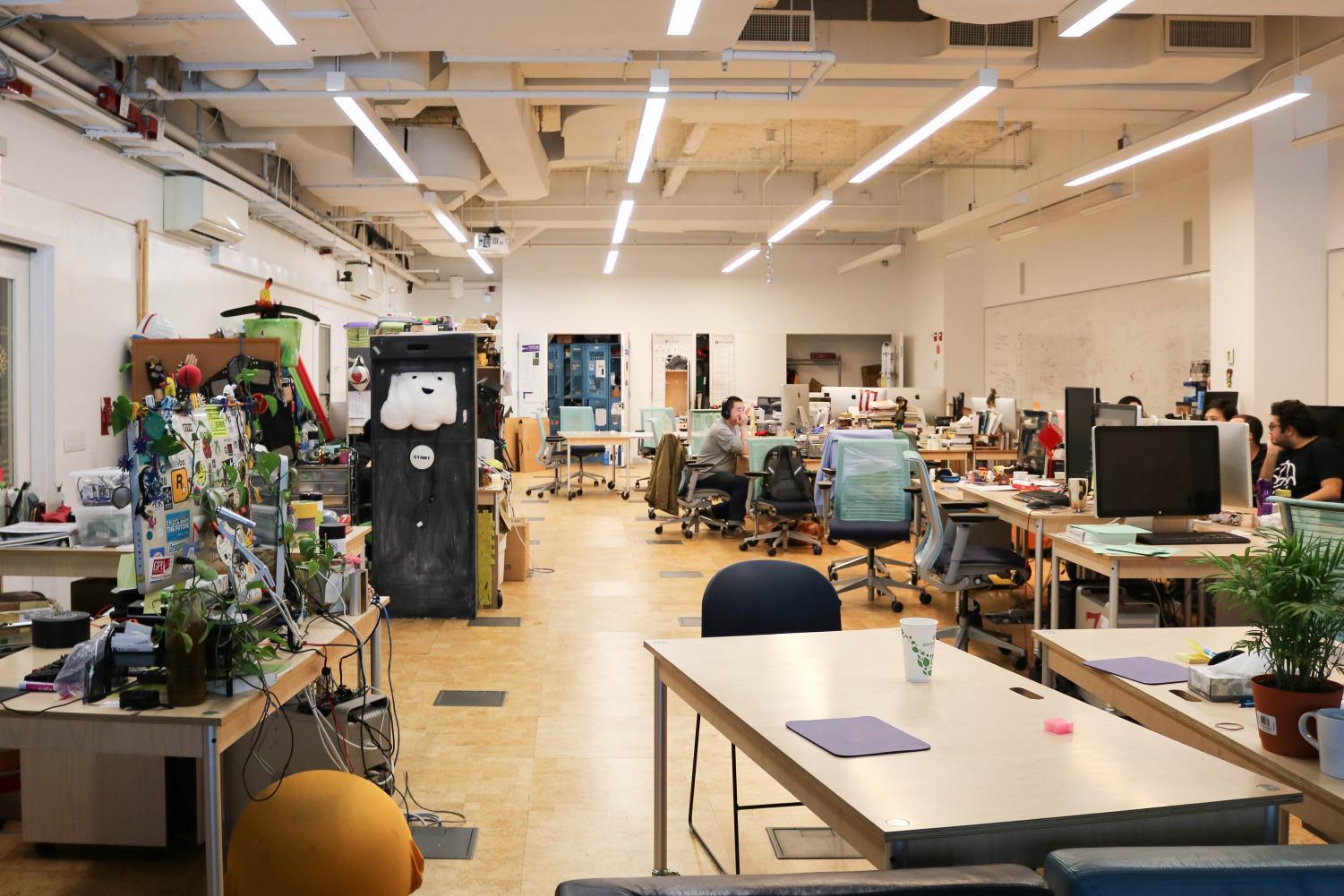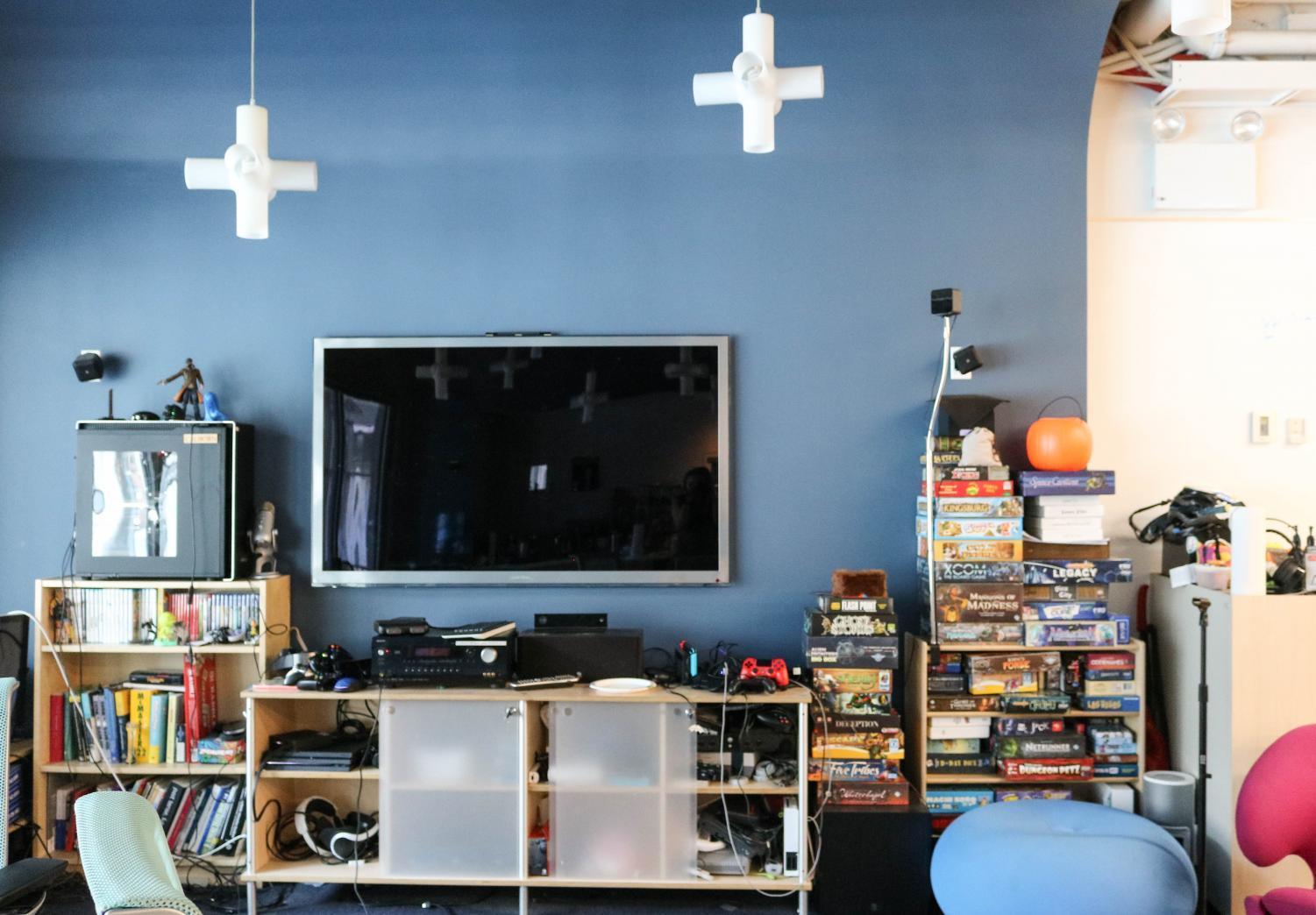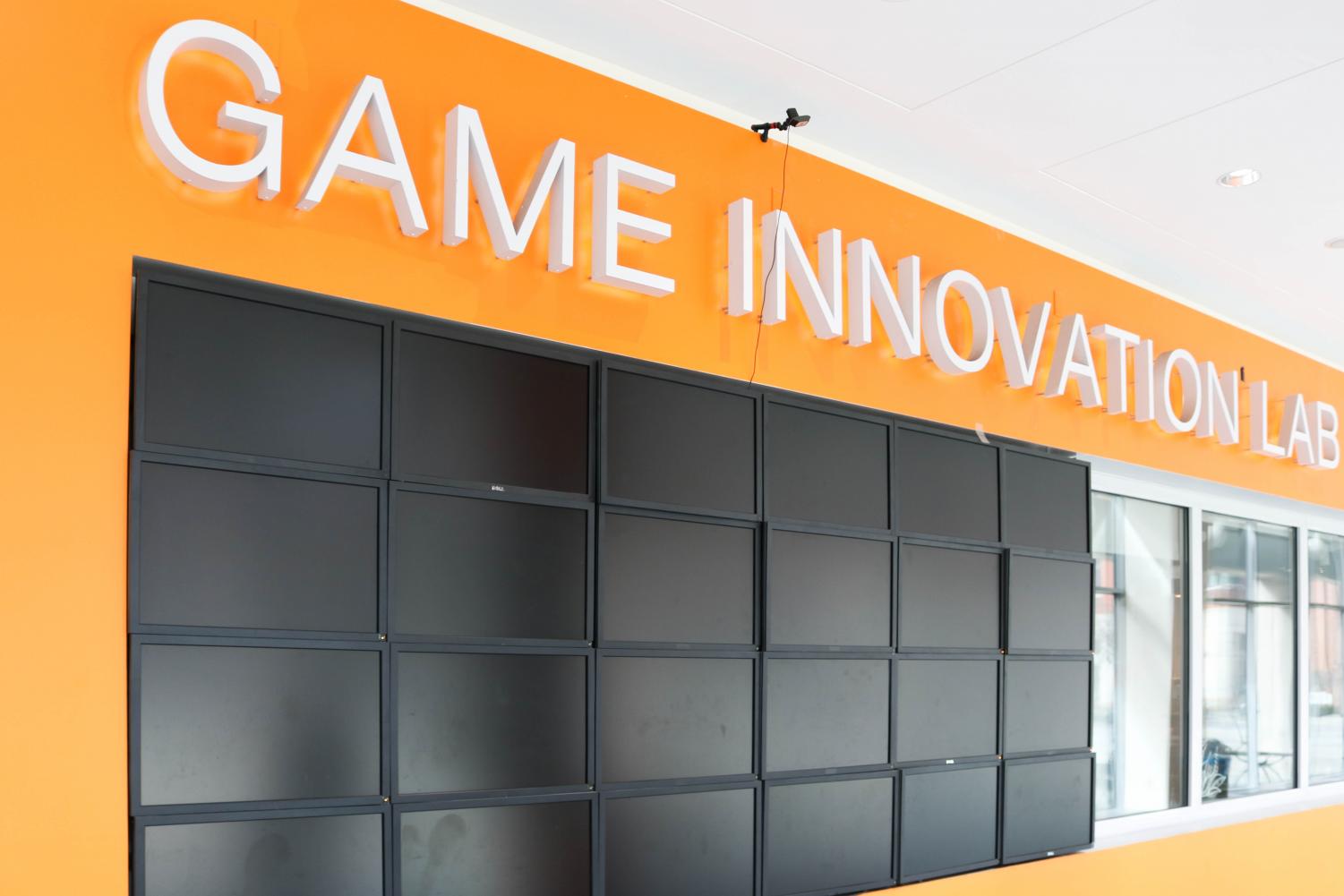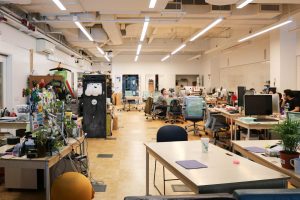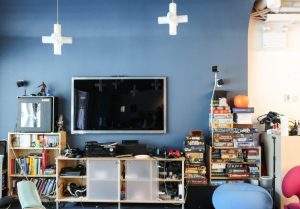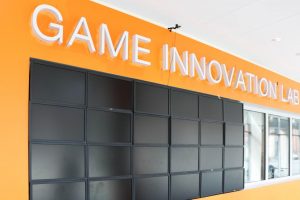Inside NYU’s Game Innovation Lab
April 8, 2018
There is more to the NYU gaming community than the horde of students that assemble every Thursday night in the lounge of University Residence Hall to battle it out on “Super Smash Bros.”
Across the Brooklyn Bridge, on the first floor of the 5 Metrotech Center building of NYU’s Tandon School of Engineering stands the striking tangerine-colored wall that marks the outside of the Game Innovation Lab.
The spacious lab, scattered with pine desks and huge desktops, hosts the collective of undergraduates, doctoral candidates and professors who conduct research on games as an innovation challenge. Their research focuses on the technical, engineering, scientific aspects of game design and simulations.
“What we do is mostly try and develop [Artificial Intelligence] research using games as the main source of the study,” said Fernando de Mesentier Silva, a doctoral student in Tandon’s Computer Science department and an employee at the lab.
Within the lab, each person conducts their own specific research while often collaborating on larger projects. De Mesentier Silva’s own research looks into whether AI techniques can be used to generate heuristics, or game playing strategies, from a game that can be taught to a player who has never played the game before and only knows the rules.
“Say I teach you the rules of the game, and then you look at me and you’re like ‘OK, I understand how to play. What is a good move now?’” De Mensentier Silva said. “So the focus of my research is to get the computer to generate those rules that are simple to understand and effective when you actually play them.”
Although it sounds specific, he believes this research has much broader applications — as does most of the work done by the lab. He hopes the findings can be applied to other concepts like learning math, with the computer providing step-by-step guidance to help people comprehend topics in an easier way.
Since its doors officially opened in March 2011, the lab has gained significant prominence, receiving funding from Yahoo Research, the National Science Foundation, Microsoft Research and Bell Labs, among others. In addition to the many papers published in peer-reviewed conferences, demos of the lab’s work have graced the World Science Festival and the USA Science & Engineering Festival.
The lab is run by two professors from Tandon’s Computer Science Department: Andy Nealen and Julian Togelius. They are both also affiliated with the Game Center, the department of game design at the Tisch School of the Arts, which is located nearby at 2 Metrotech Center. Though the lab and the Game Center often work closely together, they have very distinct missions.
“What usually happens is they are developing their own games — they’re about game design,” De Mensentier Silva said. “[The Game Center is] in certain ways is more about technology than anything, so some of the work done here is about improving the quality of life for game designers: improving ways to actually design the games and improve the techniques they are using, while figuring out how AI can help the process.”
Between the open data research, AI simulations and classes taking place in the lab, the staff like to kickback with some good old fashion relaxation in the designated gaming corner. But despite these interjections of entertainment, the lab is busy producing content to enhance the experiences of game developers and users. It’s not all fun and games.
Read more of the Washington Square News’ Technology Feature. Email Jemima McEvoy at [email protected].
























































































































































